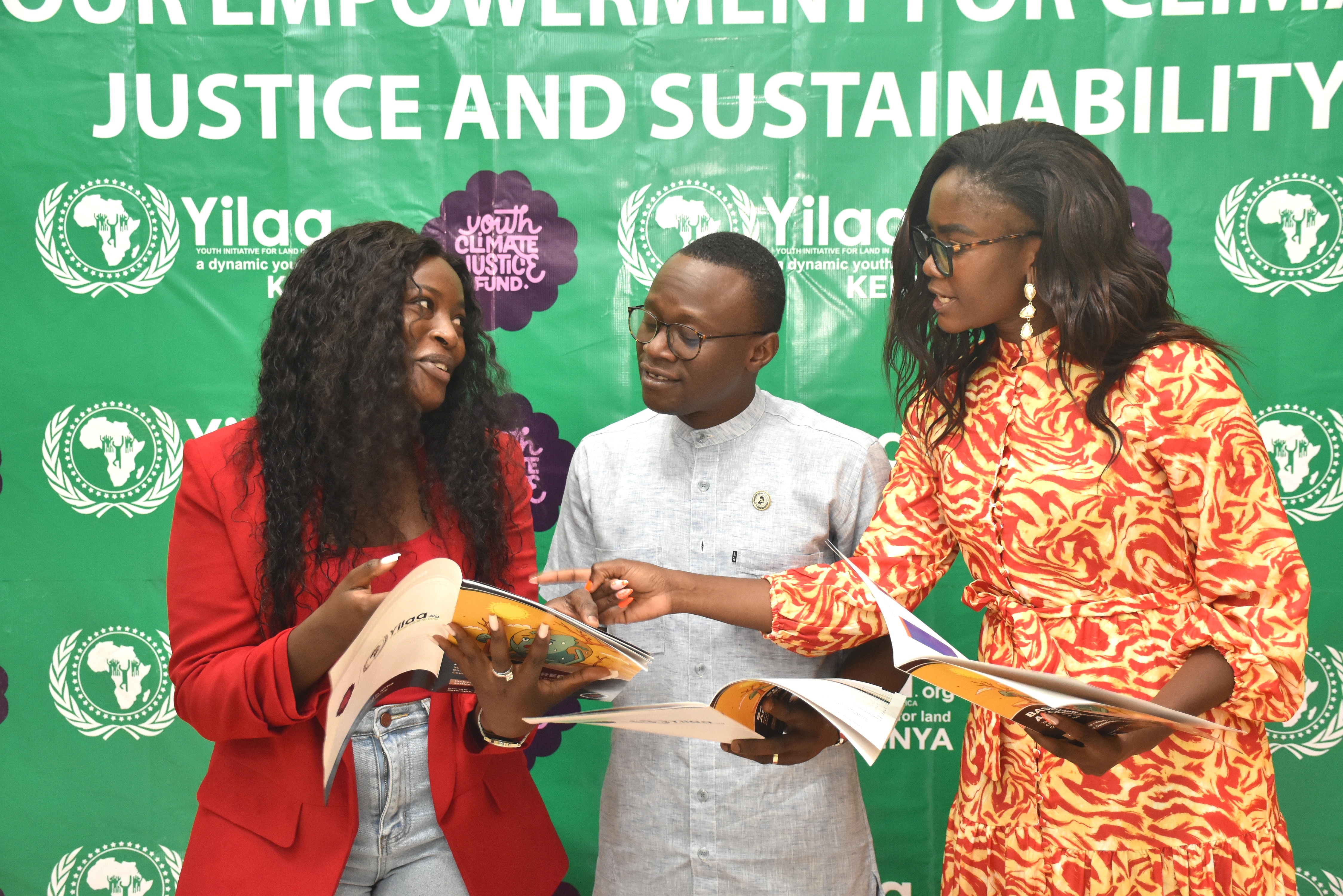
 Yilaa's programmes director (Kenya) Julie Tsuma, executive director (Benin) Innocent Houedji and volunteer, Anglophone manager Deborah Oyugi during the launch of the Youth Empowerment for Climate Justice and Sustainability at Siritamu hotel in Bungoma /HILTON OTENYO
Yilaa's programmes director (Kenya) Julie Tsuma, executive director (Benin) Innocent Houedji and volunteer, Anglophone manager Deborah Oyugi during the launch of the Youth Empowerment for Climate Justice and Sustainability at Siritamu hotel in Bungoma /HILTON OTENYOA climate justice programme aimed at enhancing young people's participation in climate change action has been launched in Bungoma County.
The initiative, Youth Empowerment for Climate Justice and Sustainability, is spearheaded by Youths Initiative for Land in Africa (Yilaa) and aims to empower youth to address climate change while promoting land rights.
Under the programme, Yilaa trains youth to transform environmental challenges into business opportunities such as recycling plastics into jewellery and bags, or turning forest conservation into income-generating activities like honey production through ecopreneurship.
Yilaa executive director Innocent Houedji said the programme links land rights with sustainable agriculture, biodiversity and climate resilience.
“These initiatives create jobs for youth and women and protect the environment at the same time,” Houedji said.
“We are trying to promote and defend land rights of the youth on the continent which is connected to the question of climate, biodiversity and agriculture,” he said.
A survey conducted by Yilaa in Webuye East, Mt Elgon and Cheptais subcounties found only 27.6 per cent of youth are aware of climate change, with most activities limited to tree planting and clean-ups.
It identified financial constraints, limited access to land and lack of inclusion in decision-making as the main barriers for youth participation in climate resilient activities.
The study recommends establishment of a county climate action fund to provide resources for youth-led climate action initiatives and increase community awareness on climate issues and their social impacts.
It also calls for gender-sensitive land tenure reforms to empower women and young people in climate-resilient land management, particularly in areas such as Cheptais.
In Cheptais, cultural norms prevent many youth and women from owning land, while in Mt Elgon, awareness levels and engagement opportunities remain low.
Yilaa volunteer manager Deborah Oyugi said their approach focuses on meaningful participation, intergenerational dialogue and community ownership of climate action are essential.
“Most youth engagements happen at a tokenism level and their views are not integrated into decision-making. We want them at the table,” Oyugi said.
Shifting climate discourse from boardrooms to community ownership was critical to succeed in combating effects of climate change, she added.
“At Yilaa, we’re making climate change a community issue by amplifying youth voices and promoting alternative livelihoods like kitchen gardens and table banking.”
Participants highlighted the importance of continuous engagement and alternative livelihoods.
Nanjekho Mulati from Webuye East’s Youth for Sustainable Development, said her motivation stems from the disproportionate impact of climate change on women and youth.
“We’ve been socialised to carry the burden of climate change. I want to lift it off for myself, fellow youth and women. We need continuous engagement, not just activities tied to national holidays,” she said.
Joyce Chepchumba from Mt Elgon urged women to embrace kitchen gardening and switch to biogas use to reduce felling of trees.
“Traditionally, women couldn’t inherit land, but things are slowly changing. If we protect our environment now, we’re saving the future,” she said.

















